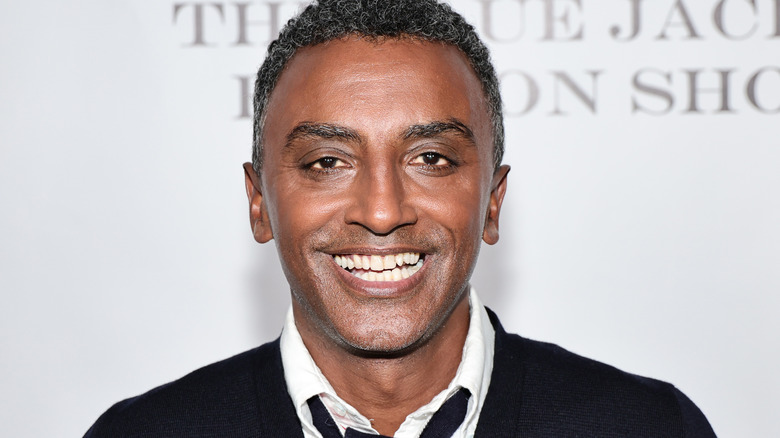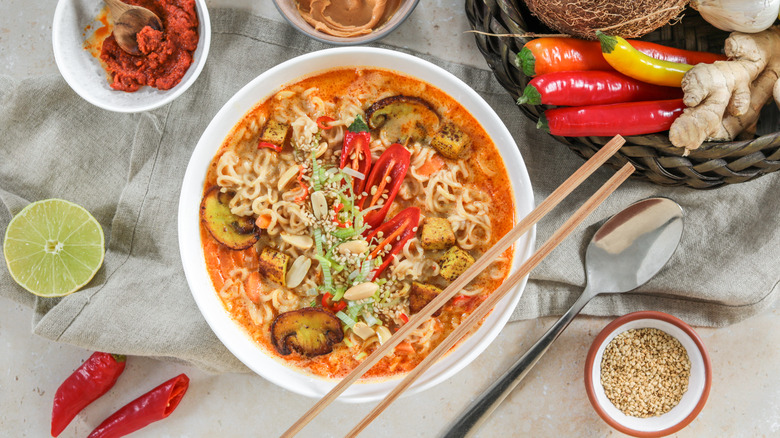The International Cuisine Marcus Samuelsson Wants To Tackle Next - Exclusive
Chefs are often known for their signature style of cooking, be it a particular cuisine or an eclectic blend of influences. Marcus Samuelsson has combined his Ethiopian origins and Swedish upbringing into menus at a multitude of restaurants, interweaving his unique flair with North American and Japanese foods and techniques. With the recent opening of Marcus Addis in Ethiopia's capital city, Samuelsson continues to explore regional flavors and international twists.
In an exclusive interview with Food Republic, the chef shared some of his culinary inspirations and cuisines he hopes to incorporate in the future. Although he is curious about foods from around the world, he is keen to learn more about certain Asian cultures. Samuelsson's restaurant VRÅ in Gothenburg, Sweden, serves a Nordic Japanese menu, sparked by the chef's time in Japan.
Still, he remains humble, noting, "I spent a lot of time in Japan, but I don't master it, but I'm always curious to learn more." Not much has changed in that respect, regardless of Samuelsson's ever-expanding collection of restaurants. "I'm in love with cooking and learning and the people behind the food. So my curiosity is just as big today as it was when I started when I was 16-17 years old," he shares.
Being open to learning is the best way to discover new cuisines
Aside from Japanese cuisine, Samuelsson elaborates, "I was in Laos and would love to know more about Vietnamese food and food from Laos, for example. [I've] been to Thailand a lot, but Laos and Vietnam are newer to me, so ... that's great, there's something to learn." While traveling to different countries is one way of learning about new cuisines, Samuelsson views it as being even simpler. First and foremost, he sees the importance of " feeding your curiosity in food and having respect for food in different cultures."
That can be as easy as sharing recipes and dishes with friends from various backgrounds. "... every country, every culture has great food and we're just lucky as chefs to dive in and learn it," Samuelsson comments, highlighting the diversity present in a metropolis like NYC. "... whether that friend is a chef or not — one of the best ways to learn is to invite that person home and start cooking with them," he recommends and adds, "You're getting some real good home cooking advice."
Learning about international foods doesn't always look like a masterclass with a professional chef or a trip to the other side of the world. It can be as simple as exchanging what you know with friends from other cultures.


